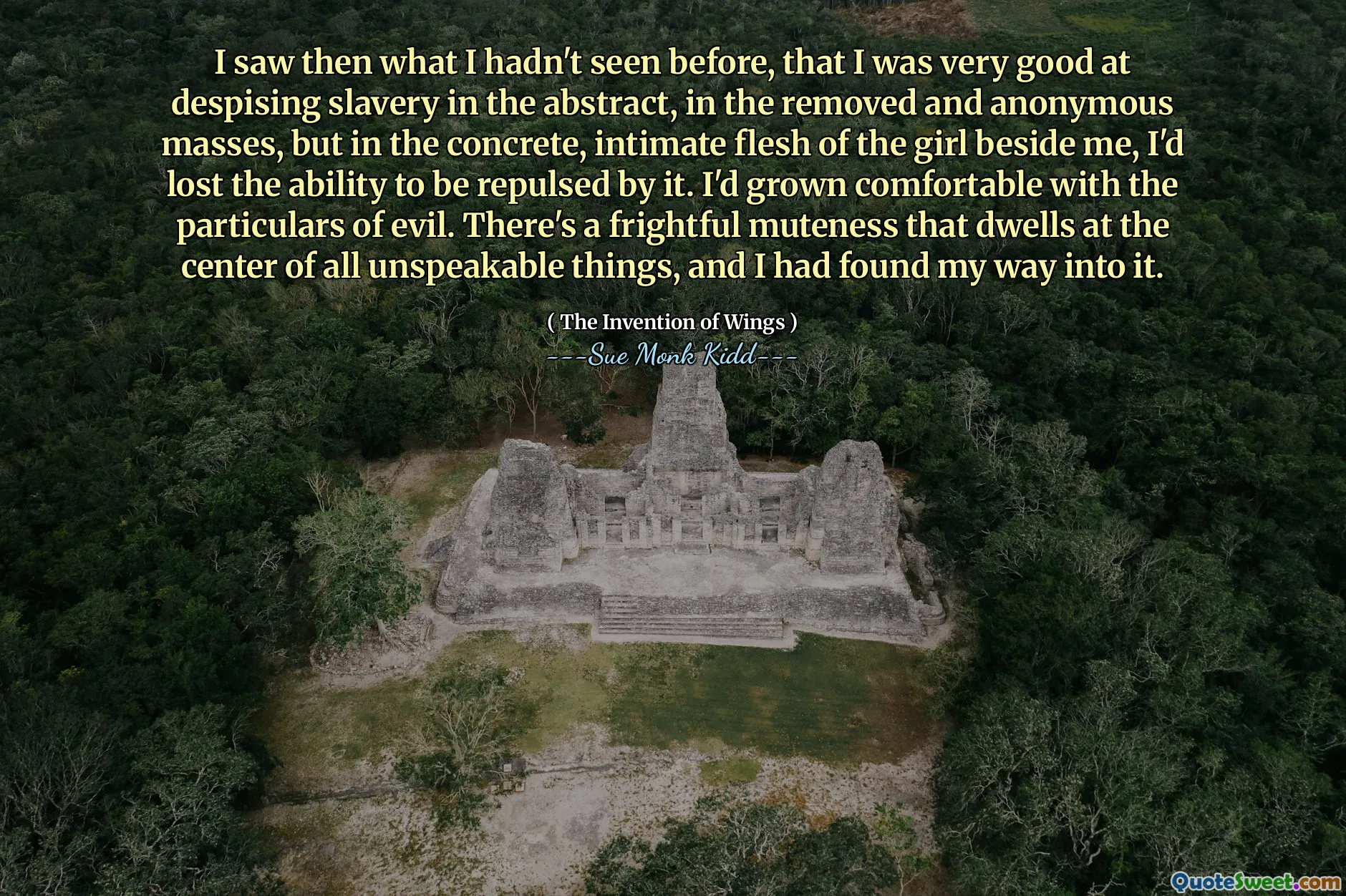
I saw then what I hadn't seen before, that I was very good at despising slavery in the abstract, in the removed and anonymous masses, but in the concrete, intimate flesh of the girl beside me, I'd lost the ability to be repulsed by it. I'd grown comfortable with the particulars of evil. There's a frightful muteness that dwells at the center of all unspeakable things, and I had found my way into it.
The quote reflects a profound realization about the speaker's relationship with the concept of slavery. Initially, they recognized the moral outrage and horror of slavery when viewed as a broad societal issue. However, when faced with its tangible impact on a specific individual, they find themselves desensitized, completely losing their ability to feel revulsion. This indicates a troubling comfort with the reality of evil, suggesting that familiarity can dull the emotional response to suffering and injustice.
The phrase "frightful muteness" emphasizes the silencing effect that such experiences can have on individuals, showcasing the struggle against apathy in the face of human suffering. The speaker acknowledges a movement from distant awareness to a disturbing acceptance of the horrors around them. This internal conflict illustrates how engaging deeply with the harsh realities of life can lead to moral numbness, raising questions about the responsibilities of individuals in confronting social evils.





